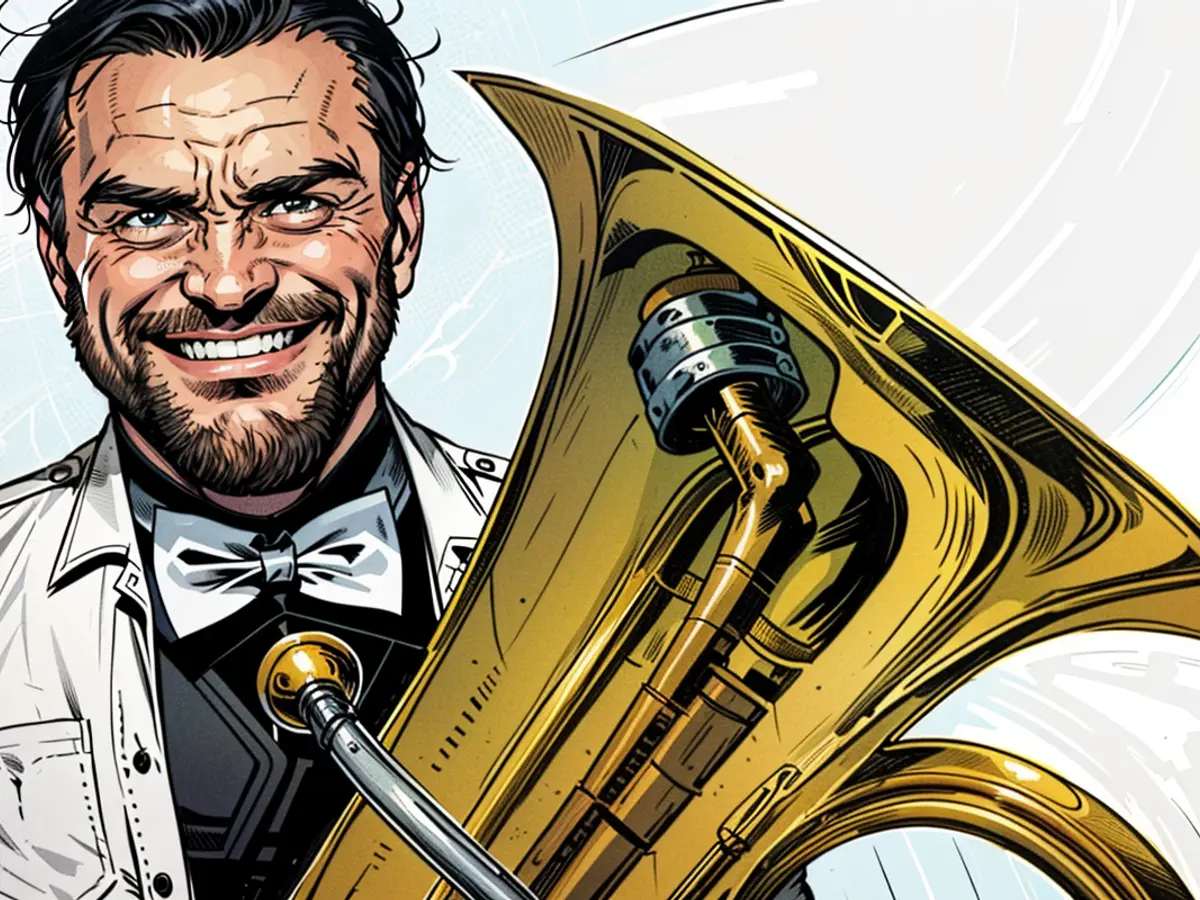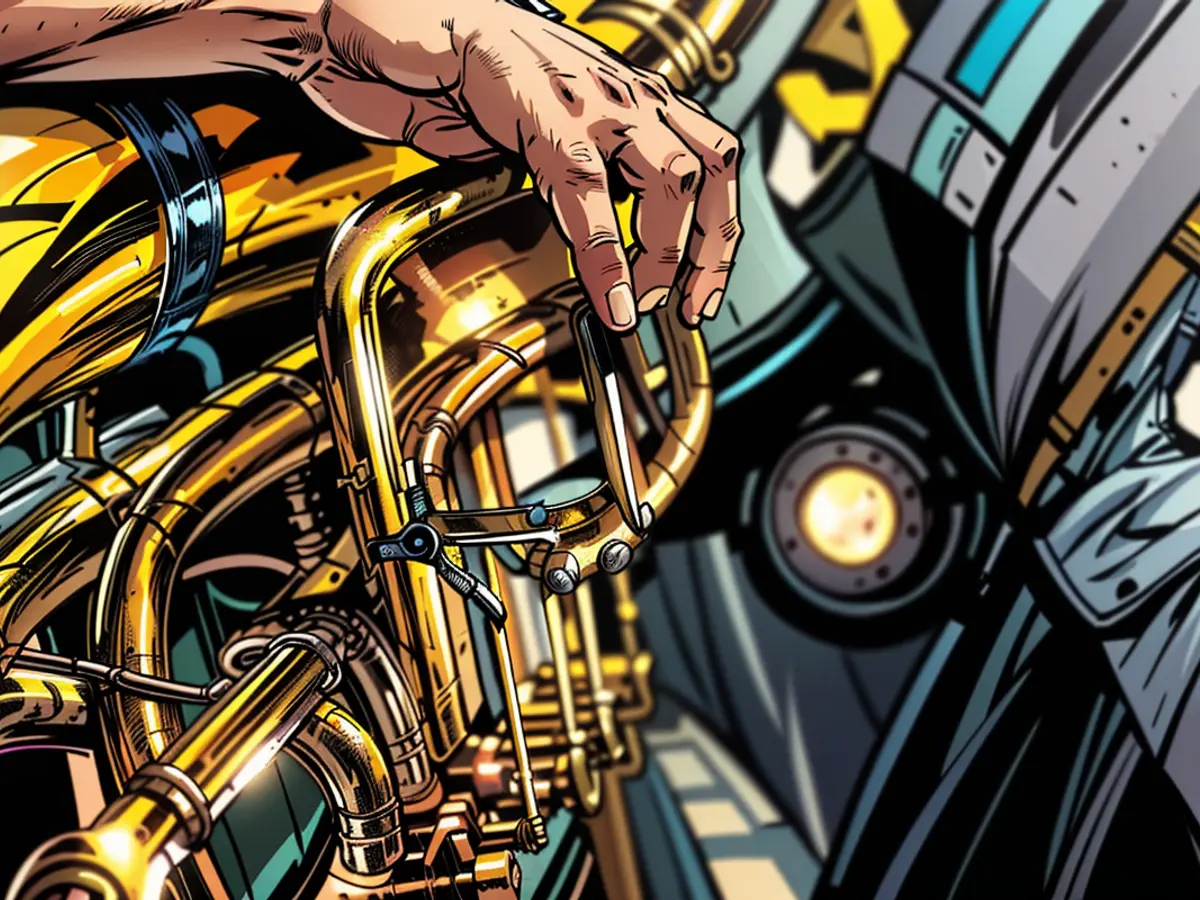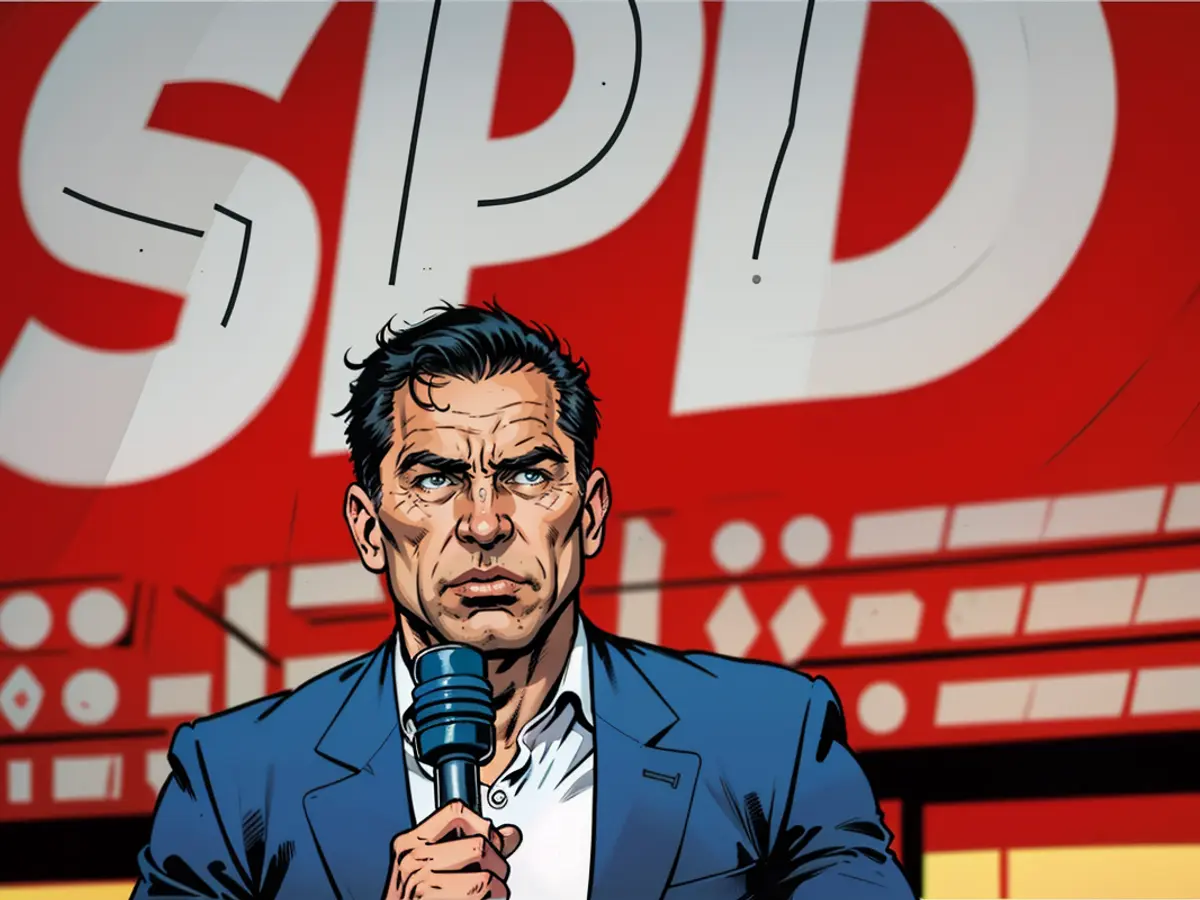"The tuba has undergone a change of image"
ntv.de: Mr. Triebener, how did you come to the tuba?
Heiko Triebener: By a fortunate coincidence. The music teacher at my high school in Tübingen led the school orchestra and asked us fifth graders who wanted to learn an instrument. I, who already played the recorder, signed up for the French horn. "We have enough of those," I was told: "But if you learn the tuba, you can join the orchestra right away and go on tour immediately." I thought that was a great prospect. And so I learned the tuba. Indeed, I got to go to France, England, and even Israel, which was wonderful.
And so the love for the tuba was born?
A recording by the American tubist Roger Bobo, which I received as a gift, contributed to this. When I heard it, I thought only: Wow, this instrument can really sound great - I want to be able to do that too. The cover also appealed to me. The musician stood casually in front of the front of a Rolls-Royce with the license plate "BOTUBA," which greatly impressed me. His colleague and friend Thomas Stevens, then principal trumpeter of the Los Angeles Symphony Orchestra, was not too proud to pose as the master's chauffeur for the album cover.
Did you think: Oh, with this you can really become famous, make money and afford a Rolls-Royce?
No. I already liked beautiful cars as a little boy. I wanted to be an automotive designer as a child. Then I had an epiphany. With my parents, I visited a professional musician. That's when I realized that you can also make a living with music. The realization and the record were real triggers for me. From then on, I practiced five or six hours every day.
It seems that tubists often come to their instrument by chance or happy coincidence. Apparently, it's not usually a child's first choice.
That was the case back then. But that has changed. There are more and more girls learning the tuba. It has undergone an image change, from the ugly duckling to the cool instrument. Kids are really into it and want to play it. There are also tubas for boys and girls that are much smaller and lighter than those for adults. When I learned the instrument, I had to sit on a pile of pillows to hold it and still reach the mouthpiece.
Do you have an explanation for why children are suddenly interested in the tuba?
I think the time is just right for it. I notice it myself when I go to kindergartens and schools, how open the little ones are to the instrument. They're amazed by this big, shiny thing that can produce such beautiful, warm tones. It can do more than just announce a villain.
Now you're talking about Richard Wagner?
And about Igor Stravinsky. But he completely misunderstood the instrument. He used the tuba like a percussion instrument. Richard Strauss and Anton Bruckner were the first composers to understand that the tuba can sound wonderfully melodic like a French horn, just deeper.
Maurice Ravel gave each wind instrument a solo in his "Bolero," except for the tuba. Does that bother a tubist?
No, not really. It's a great piece of music, and I'm just happy to be a part of it.
This is completely unsatisfying. Sometimes I wonder how the world of the tuba would have turned out if Ravel had also given it a solo part. But with him, it's like with Stravinsky. The tuba is allowed to let out a few short notes here and there - and that's it. Unlike Bruckner and Strauss, Gustav Mahler and especially Sergei Prokofiev have recognized the qualities of the tuba. We tubists love Prokofiev's and Mahler's 5th symphonies. There, the tuba is called upon to be soloistic, and the tubist is constantly in action!
Questions to tubists often start with: Isn't it annoying that... For example: You will never be given Bach or Mozart in the concert hall. Is that bad?
It would be depressing if I could never play them. But in the Baroque era, it was common for a composition for one instrument to be arranged for another. In this tradition, we have processed music from that period. Bach's cello suites are played by tuba students transposed on their instrument. I think it's essential for young talent to deal with Mozart and play his works on the tuba. I do that too. Together with the Bamberg actor Martin Neubauer, I give a parody of "The Magic Tuba", based on Mozart's "The Magic Flute", including the aria of "The Queen of the Night".
The tuba is mainly perceived in public as an instrument of brass music. Its warm side is less known. Can you explain what the tuba has that it generates lyrical notes?
That's due to the pipe, like the French horn and the trumpet, which gradually and continuously widens from the mouthpiece to the bell. With trumpets and trombones, it's different, which is why they produce fanfare-like notes and sound more metallic and blaring. I don't understand why composers only came up with the idea of using its lyrical side 120 years after the invention of the instrument.
Perhaps the tuba was considered dull and not virtuosic enough.
I'm reminded of the story that the soloist of the premiere of Ralph Vaughan Williams' tuba concerto, Philip Catelinet, forbade his wife from attending because he believed he would have a disastrous evening and be booed. He wanted to spare her the shame. Then it was such a success that the concerto had to be repeated.
The tuba is often used to underscore rural life, for example, in the ZDF series "Die Rosenheim-Cops". Does that bother you?
On the contrary, I love it, especially the theme music "Pfeif drauf" by Haindling, which I've even arranged into a tuba duet for my students. If the instrument serves to acoustically characterize one of the three overweight but clever detectives in a enjoyable way, I have no problem with it. Here, clever and skillful use of a stylistic device is employed: slapstick at its finest!
Thomas Schmoll spoke with Heiko Triebener
The European Union's musical scene could potentially benefit from more exposure to the versatile sounds of the tuba, as demonstrated by Heiko Triebener's experiences. Despite its initial association with rural life or villainous roles, the tuba can produce melodic and lyrical tones, as shown in compositions by richly talented composers like Gustav Mahler and Sergei Prokofiev.









